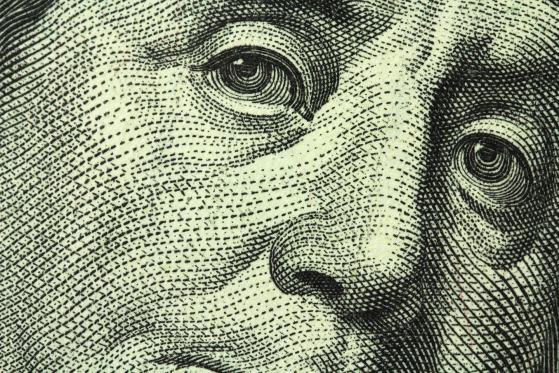PoundSterlingLIVE - The U.S. non-farm payroll report has shown a knack of consistently coming in above expectation over recent months, but August's provided a rare downside surprise that appears to have knocked the Dollar in the short-term.
The Pound to Dollar exchange rate, under pressure for two weeks now, rose in the wake of news U.S. payrolls increased 187K in July according to the BLS, undershooting expectations for 200K, and coming in broadly unchanged on June's downwardly revised 185K.
"Today's jobs report is slightly weaker than expected. Last month’s results offered evidence that employment growth had begun to slow, and today’s numbers indicate that a downward trend may be in motion," says Richard Flynn, Managing Director at Charles Schwab (NYSE:SCHW) UK.
The GBP/USD rose to 1.2735 in the data's wake amidst a broader pullback in the Greenback.
"The below consensus reading in hiring in the July payrolls is the type of labour market softening the Fed is looking for," says Ali Jaffery, an economist at CIBC Capital Markets.
Gains would likely have been more extensive had wage figures not been so strong: average hourly earnings rose 4.4% in the year to July, exceeding an expectation for 4.2%, suggesting wage pressures can underpin domestic inflation for some time yet.
Furthermore, the unemployment rate actually ticked lower to 3.5% from 3.6%, confirming the labour market remains tight and consistent with inflation-generating wage rates.
"The Fed would likely prefer to see wage gains closer to 3%. Growth in the 4% region may not be enough to convince bankers that monetary policy is working, so further interest rate hikes may be around the corner," says Flynn.
"As ever, there is conflicting data in these releases. However, it does seem that the labour market is cooling, albeit slowly, which is just what the Fed will want to see. Overall, this increases the chances of rates being at their peak and the Fed pulling off the trick of getting inflation under control whilst keeping the economy strong," says Neil Birrell, Chief Investment Officer at Premier Miton Investors.
The Dollar's recent rebound has a run of above-consensus economic data to thank as it has shifted expectations in favour of another interest rate rise at the Fed in September while pushing back expectations for rate cuts.
While the data out of the U.S. was supportive of a rise in Pound-Dollar value, it is likely not significant enough to turn the current short-term downtrend around.
"The unemployment rate ticked down a notch to 3.5% and average nominal wages grew 0.4% for the second consecutive month. The Fed will continue to be looking for a broader set of data and will be focused on a further deceleration in prices before throwing in the towel for September," says Jaffery.
"At the moment there still seems to be enough momentum in the economy to avoid recession. Whisper it, but the fabled ‘soft landing’ may just be achieved," says David Henry, investment manager at Quilter Cheviot.
Investors will now look to next week's U.S. inflation data as being the next key event on the calendar for Dollar exchange rates.
"The economy’s robustness may mean that the Fed feels comfortable continuing to raise rates, but it has repeatedly stated that these decisions will remain dependant on the data and there are a number of data points due before the next meeting - not least next week’s inflation number," says Henry.
An original version of this article can be viewed at Pound Sterling Live
